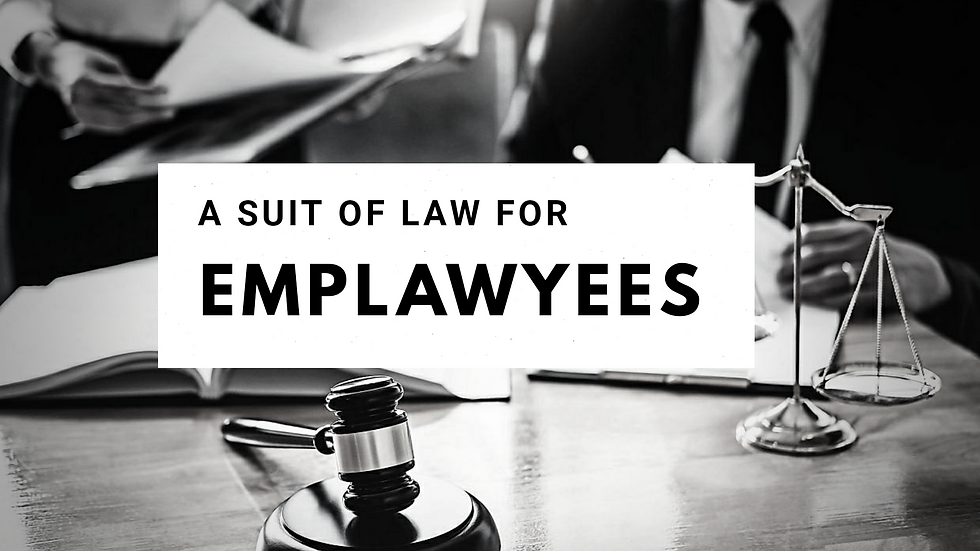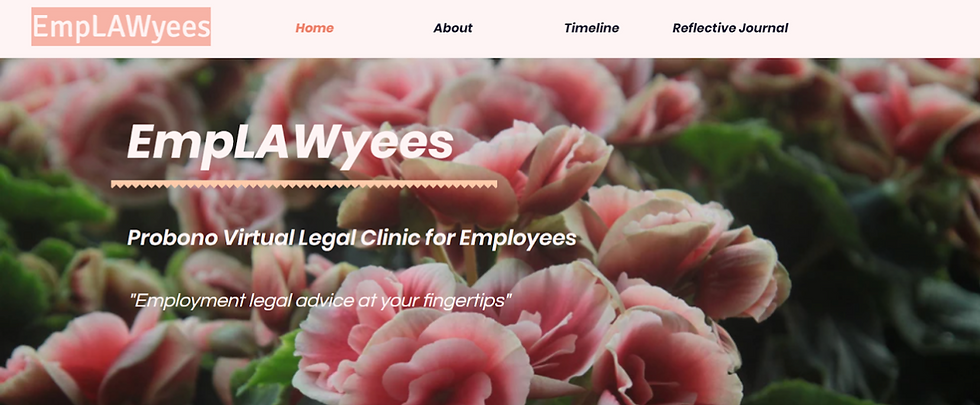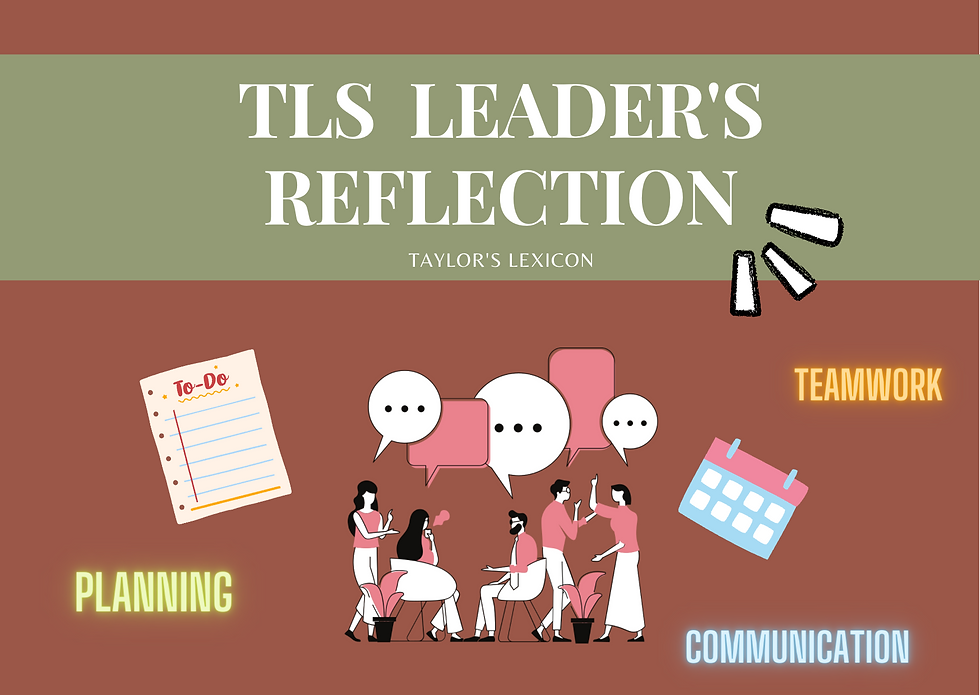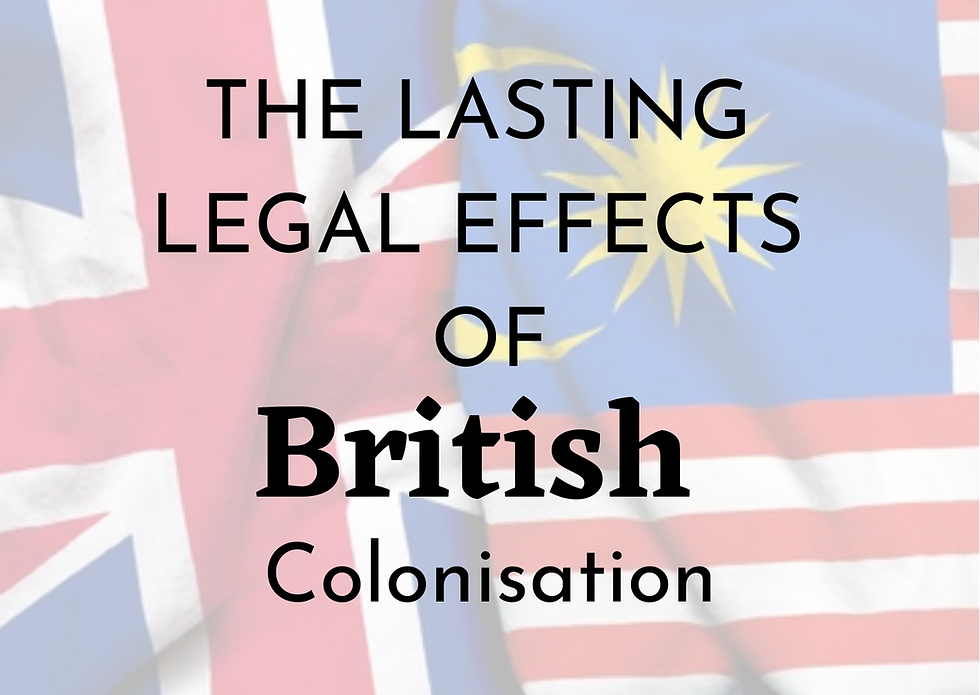A Suit of Law for EmpLAWyees
- Lexicon Editorial Board

- Nov 2, 2020
- 5 min read
By Diong Tze Li

Diong Tze Li recently completed her final year of law school at Taylor’s University. As part of the community service (CSI) module during her final semester at Taylor’s Law School, she and her friends endeavoured to start a pro-bono virtual legal clinic named ‘EmpLAWyees’. This legal clinic was meant for the benefit of employees negatively impacted by the COVID-19 pandemic.
Tze Li’s Reflection:
It was our goal to raise legal awareness in various employment matters and encourage employees to uphold their rights at the workplace. We gathered for a virtual meeting to discuss the scope of our project and selected a community negatively affected by the worldwide COVID-19 pandemic. After a fairly hour-long discussion, many suggestions were raised, including providing pro-bono legal advice to B-40 households, victims of domestic abuse and the homeless community.
'Employees' garnered the most votes as our group realized that most of our peers or acquaintances already joined the workforce. We also noted that current news generally involved employees facing grievances at work such as being forced to take leave (paid or unpaid), being retrenched, having their salary reduced and so forth. This was evidenced by the government taking extensive measures to remedy the phenomenon with various financial-assistance schemes and guidelines.
Hence we were confident that our legal clinic will be able to benefit many around us. We also proceeded to assign each member with a role; such as marketing, public relations, graphic design, as well as information technology. I was rather nervous being appointed as the project leader as I was to act as the 'final check-point' in all matters. However, my team members gave me great assurance because I knew I could depend on them to make this project a success.
Our team was adamant on running our virtual legal clinic in a manner which reflects an actual legal firm as closely as possible. One of the more common features we noted an actual legal firm possesses is advising clients through private and confidential letters of opinion. Hence, we decided to reach out to the public and encourage employees with legal concerns to submit their inquiries via a Google Form or email to our legal clinic.
Each week, two members were tasked to draft letters of opinion in response to these inquiries. As the team leader, it was my responsibility to finalise all of these drafts before they were communicated to our clients. It was a challenge in the beginning as neither of us had extensive experience in employment matters. Hence substantial research and additional reading were required. It definitely helped to have eight brains coming together. By working as a group we were able to gradually adapt and soon providing advice became more enjoyable.
Not only did our clients become more informed about the law during the course of this project, but we also gained better insight into work-related disputes which actually take place through client correspondences. It was interesting to learn of the different experiences and working environment each employee who approached us had. Due to our anticipation of positive response from the public, we set an initial target of providing private legal advice to at least 30 clients. At the end of our project, we were very pleased to have communicated private advice to a total of 31 people, all due to our group effort and perseverance.
In addition to providing private legal advice, we also aimed to disseminate legal information on employment matters to the general public. The purpose of doing so was to increase legal awareness on a larger scale and to interact with our legal clinic 'followers' on Facebook and Instagram. For example, we put up informative and creative content in the form of short posts, videos and FAQs weekly to cover various topics such as termination, forced leave, constructive dismissal and salary reduction in light of the pandemic. We then invited the public to reflect and consider whether they were facing any of these issues.
This proved to be fruitful as a number of clients who approached us for private advice became aware of possible violations of their rights at their workplace after viewing these contents. We also conducted polls to gauge the issues that our audience are more interested to learn about. This activity was not as simple to execute as I imagined because extensive collaboration was required. For instance, members tasked to lead the production of creative content for the week had to work with other members in charge of graphic design, information technology and research to ensure quality content was delivered.
All in all, I would say that the operation of our virtual legal clinic was a success. We were able to meet our targets set out in our initial proposal and garnered positive feedback from our clients. One possible area of improvement I identified was the allocation of time. We were often a little too confident in being able to accomplish a given task within a short period of time. Although we were still able to meet deadlines, we could have avoided the panic and stress if we allocated more time for said task.
In terms of collaboration, I cannot emphasize how blessed I was to have a team which undertook their respective roles and responsibilities seriously. It was my task to lead the team; however, I could not have done so without their constant support and cooperation. Upon reflection, I would say my leadership skills have improved as I learned how to better assign tasks according to my members' talents. I also learned to make a conscious effort in listening and considering the suggestions my team offers. It made me realise that a good leader cannot always be a dictator and should consider all possible perspectives.
This experience has also broadened my appreciation for legal issues during the COVID-19 pandemic as we had to constantly keep ourselves updated with the latest news and government initiatives. On a side note, we found the Malaysian government's efforts extremely commendable due to the various measures, guidelines and statements introduced to help prevent employment disputes during the COVID-19 pandemic.
Due to the wide scope of legal issues we had to cover, I also learned the importance of being organised and learning independently. Most of our clients not only want to be informed of the law, but they also seek advice on possible recourse. Hence, this helped develop my critical thinking and problem-solving skills as I had to present my views on which recourse is most practical or suited for the client.
Running a legal clinic was by no means a walk in the park. Constant dedication and efforts were necessary. Throughout the entire duration of this project, I truly felt a sense of accomplishment being able to make small contributions to the fight against the pandemic by raising legal awareness on employees’ rights. It made me realise that although knowledge and good grades are important to a law student, that should not be everything a law student entails.
I definitely learned the importance of dedicating effort towards helping and having empathy for others. Hence, I look forward to more opportunities to volunteer and provide pro-bono legal advice in the future. As a future legal practitioner, I hope that my career will not be centred entirely on fame and money. I want to also bring a positive impact to society and those in need.
Link to e-portfolio: https://janniediong0430.wixsite.com/e-portfolio




Comments